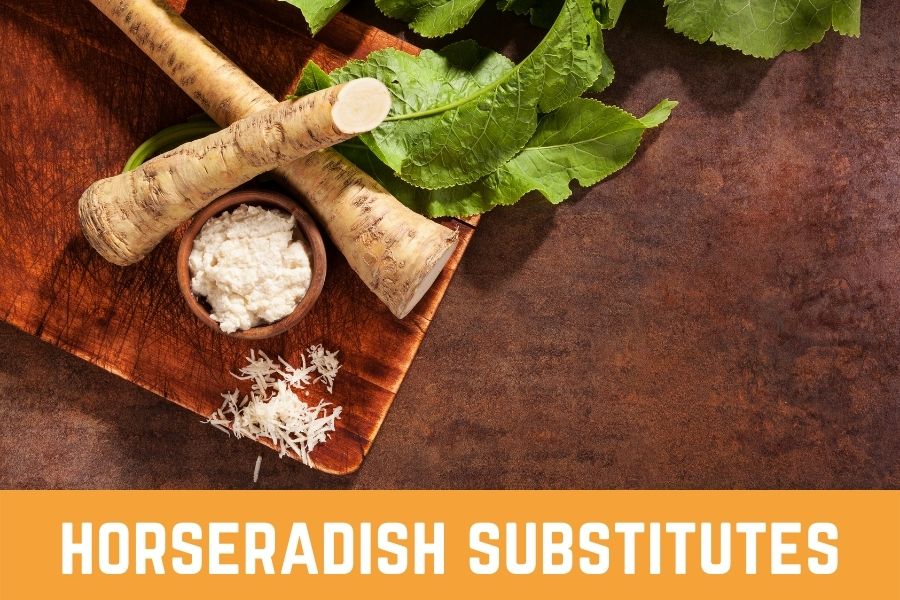Horseradish is a famous condiment for roast beef.
It has a tangy yet refreshing aftertaste, making it an indispensable ingredient when preparing meat dishes.
However, horseradish is a difficult ingredient to find because few stores carry it.
Therefore, there are probably many people who need it but cannot buy it near them.
In this article, I would like to introduce you to some horseradish substitutes that can be useful in times of trouble.
Horseradish Characteristics and Substitutes
Horseradish has the following characteristics.
Characteristics of Horseradish
- White in color
- Has a pungent taste
- Slightly sour
- Refreshing aftertaste
- Goes well with meat dishes
Horseradish is white, unlike other condiments commonly eaten in Japan, and adds color to meat dishes. It adds color to the dish and makes it more colorful.
Horseradish has a pungent taste like wasabi, but it is not spicy all the time and has a refreshing aftertaste.
The tangy yet refreshing aftertaste helps to reduce the heaviness of fat in fatty meat dishes.
I recommend these five alternatives to horseradish!
Horseradish substitute 1: Wasabi
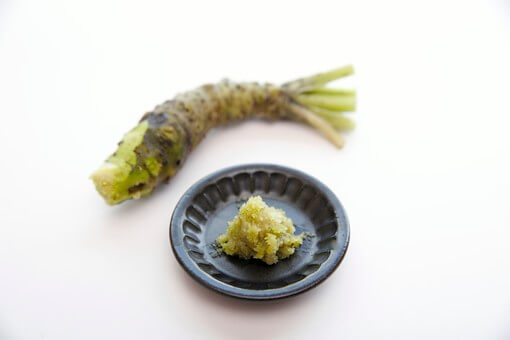
Horseradish is called Western horseradish, which means that it is relatively similar to Japanese horseradish in many ways.
Therefore, horseradish can be used instead of horseradish for a delicious taste.
Few people may have seen horseradish before it is rubbed down, but it looks completely like white wasabi.
Also, the taste is a little different from that of horseradish, so it cannot be said that horseradish can completely reproduce horseradish.
Horseradish substitute 2: Mustard
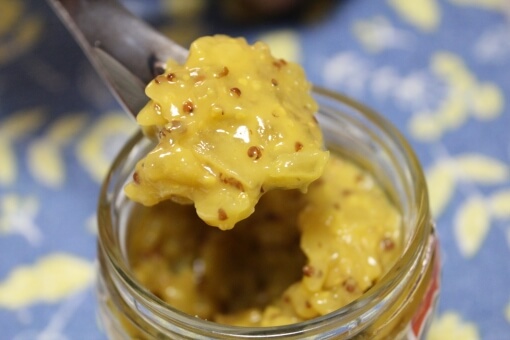
Mustard is delicious when dipped in sausage or other foods, but it is hard to reduce, so many people probably let it sleep in the refrigerator.
Mustard can also be used as a substitute for horseradish.
There are many kinds of mustard, but I recommend light yellow mustard called “hot mustard”.
Of course, mustard can be eaten as well, but hot mustard is more similar to horseradish in its moderate sourness and pungency.
Also, the bright yellow color makes the dish look gorgeous.
One thing to note is that mustard is not as hot as horseradish, so if you are looking for a spicy taste, this may not be the right choice for you.
Horseradish substitute 3: Ginger
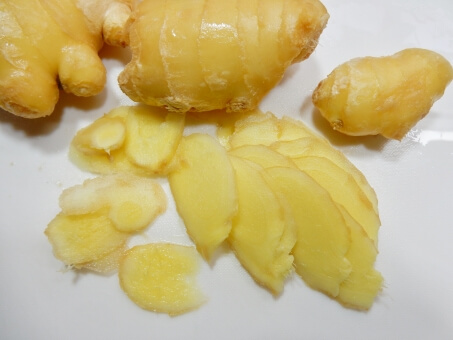
Ginger is effective in removing the smell of food and adding flavor.
Such ginger can also be used as a substitute for horseradish.
When using it, you can grate the fresh one by yourself or use the tube type without any problem.
The tangy flavor of ginger reduces the fatty taste of meat and also eliminates the odor, so even peculiar meats can be enjoyed.
It is important to note that although ginger is pungent, its flavor is unique and very strong, so if you use too much of it, you will only taste the ginger.
Therefore, use only a small amount to eliminate the smell and enjoy the ginger flavor.
Substitute for horseradish 4: Grated radish
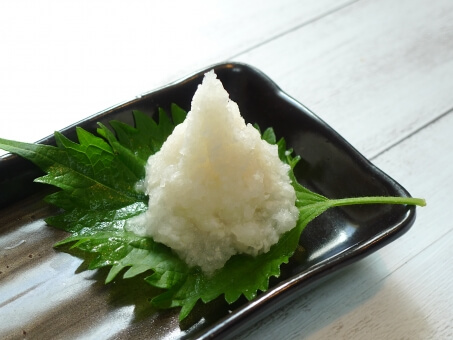
Grated daikon is an indispensable ingredient for grilled fish.
It looks white and has a spicy flavor, so it is a good substitute for horseradish.
When using it as a substitute, you can make it more pungent by using spicy daikon radish, or even regular daikon radish with a thin, pointed tip.
One thing to note is that grated daikon is not as pungent as horseradish.
Horseradish substitute 5: Japanese mustard
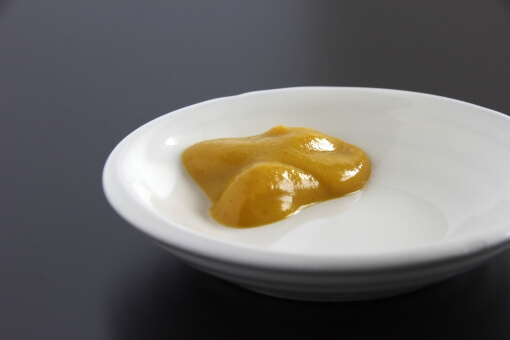
Japanese mustard is very popular in Japanese cuisine such as oden and Japanese dishes.
Japanese mustard is a spicy condiment with no acidity, so you can get the same spicy taste as with horseradish.
One thing to keep in mind is that if you use too much of it, the flavor of the mustard will come out strongly and may ruin the dish.
Therefore, it is important to use only a small amount of the substitute.
Make it even closer to horseradish by adding some vinegar
Although we have introduced horseradish substitutes so far, it is inevitably difficult to describe horseradish with just one ingredient.
In particular, “sourness” is an element that most of the substitutes lack.
However, the addition of vinegar to any of the substitutes can make them taste more like horseradish.
As for the amount of vinegar added to the substitute, you can adjust it to your liking, but if you add too much, the sourness will prevail and the pungent taste will be lost.
However, if you add too much vinegar, the sourness will overpower and the spiciness will be lost. Therefore, try to find the amount of vinegar that will add the right amount of sourness while maintaining the hardness by adding one drop or a small amount at a time.
Summary
- Horseradish is characterized by its pungent taste and refreshing aftertaste.
- As a substitute, you can use something pungent but also has a moderately refreshing taste.
- Wasabi is relatively close to horseradish and is recommended as a substitute.
- Hot mustard is similar to horseradish in sourness and moderate pungency.
- Ginger should be used in small amounts, otherwise, the taste of the ingredients will be lost.
- Grated radish is similar in appearance, but the pungency may not be expected depending on the part used.
- It can be used as a substitute for Japanese mustard, although you need to be careful about how much to use.
- Adding “vinegar” to the substitute will make it more similar to horseradish.
